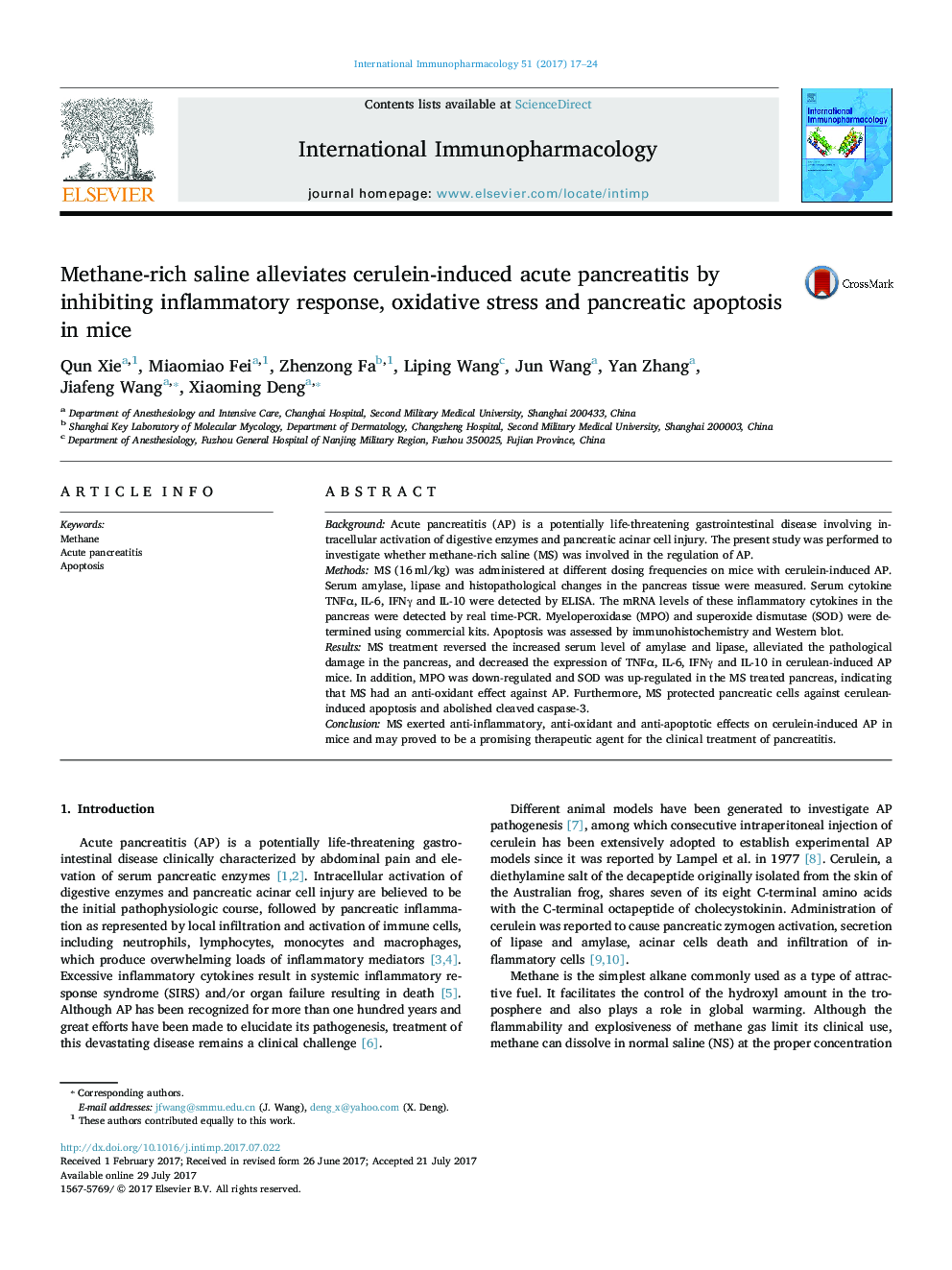| Article ID | Journal | Published Year | Pages | File Type |
|---|---|---|---|---|
| 5555211 | International Immunopharmacology | 2017 | 8 Pages |
â¢Methane-rich saline alleviated pancreas apoptosis in cerulein-induced acute pancreatitis.â¢Methane-rich saline inhibits inflammation both in pancreas and systematically.â¢Methane-rich saline might be a promising treatment for acute pancreatitis in clinical practice.
BackgroundAcute pancreatitis (AP) is a potentially life-threatening gastrointestinal disease involving intracellular activation of digestive enzymes and pancreatic acinar cell injury. The present study was performed to investigate whether methane-rich saline (MS) was involved in the regulation of AP.MethodsMS (16 ml/kg) was administered at different dosing frequencies on mice with cerulein-induced AP. Serum amylase, lipase and histopathological changes in the pancreas tissue were measured. Serum cytokine TNFα, IL-6, IFNγ and IL-10 were detected by ELISA. The mRNA levels of these inflammatory cytokines in the pancreas were detected by real time-PCR. Myeloperoxidase (MPO) and superoxide dismutase (SOD) were determined using commercial kits. Apoptosis was assessed by immunohistochemistry and Western blot.ResultsMS treatment reversed the increased serum level of amylase and lipase, alleviated the pathological damage in the pancreas, and decreased the expression of TNFα, IL-6, IFNγ and IL-10 in cerulean-induced AP mice. In addition, MPO was down-regulated and SOD was up-regulated in the MS treated pancreas, indicating that MS had an anti-oxidant effect against AP. Furthermore, MS protected pancreatic cells against cerulean-induced apoptosis and abolished cleaved caspase-3.ConclusionMS exerted anti-inflammatory, anti-oxidant and anti-apoptotic effects on cerulein-induced AP in mice and may proved to be a promising therapeutic agent for the clinical treatment of pancreatitis.
